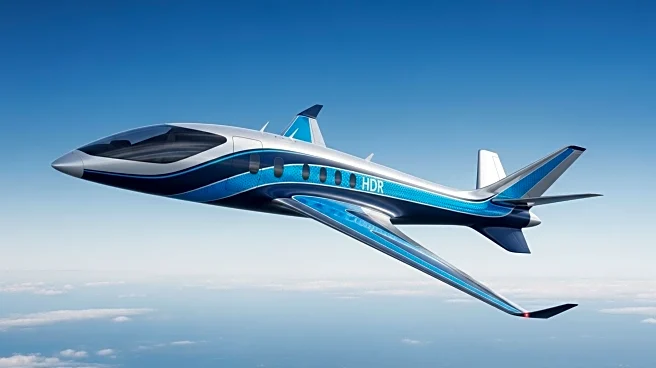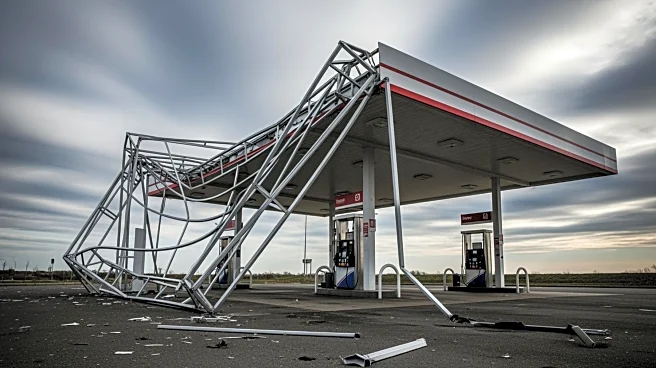What's Happening?
Israeli aviation startup Air VEV has received certification from the U.S. Federal Aviation Administration (FAA) for its electric vertical takeoff and landing aircraft, the Air One. This certification, granted under the new MOSAIC regulation, allows the aircraft to operate as a light sport aircraft for private recreational flights outside populated areas. The approval marks a significant milestone for Air VEV, enabling expanded test flights in Florida and paving the way for customer deliveries by 2026. The Air One is designed to carry two passengers or transport unmanned cargo loads, with a top speed of 155 mph and a maximum flight time of one hour. Priced competitively at around $200,000, the aircraft has already attracted interest from 2,500 potential customers. Air VEV is also targeting military markets, having secured contracts with the IDF and the U.S. military.
Why It's Important?
The FAA certification is crucial for Air VEV as it positions the company to capitalize on the growing interest in electric vertical takeoff and landing (eVTOL) aircraft in the U.S. market. This development could significantly impact the aviation industry by introducing a new category of affordable, easy-to-operate aircraft for private individuals. The Air One's competitive pricing and innovative design may challenge existing eVTOL manufacturers, potentially leading to increased competition and technological advancements. Additionally, the company's military contracts highlight the strategic importance of eVTOL technology in defense applications, offering new capabilities for logistics and remote operations.
What's Next?
Air VEV plans to continue prototype test flights in Israel and Florida, with FAA inspectors overseeing assembly and airworthiness. The company aims to deliver aircraft to private customers by the end of 2026. Demonstrations for customers, partners, and investors will be held at the Florida site to build momentum in the U.S. market. As Air VEV expands its operations, it may face challenges related to regulatory compliance, market competition, and consumer adoption. The company is also exploring broader uses for its aircraft, including potential operational missions in military contexts.
Beyond the Headlines
The introduction of eVTOL aircraft like the Air One could lead to long-term shifts in urban transportation, potentially reducing reliance on traditional road vehicles and alleviating traffic congestion. The technology also raises ethical and regulatory questions regarding airspace management, safety standards, and environmental impact. As eVTOL aircraft become more prevalent, policymakers will need to address these issues to ensure safe and sustainable integration into existing transportation systems.









